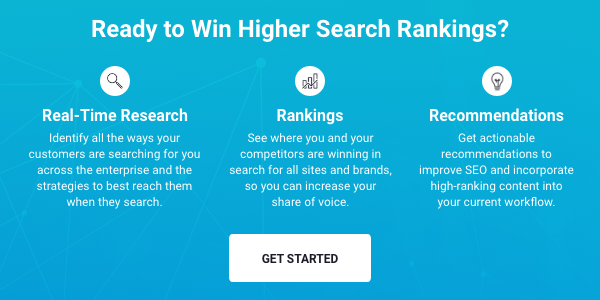Over the last several years, more alternative search engines have entered the market, taking away market share from global giants.
Open-access technologies and inexpensive tools have allowed smaller organizations to build search engines that offer unique value propositions based on privacy, security, topical accuracy, charitable contributions, and more.
But what does this mean for search engine optimization (SEO)? Are alternative search engines simply a fringe concern with little likelihood of challenging Google’s dominance? Or should they be considered and leveraged as a valuable source of traffic?
Let’s jump into the current state of the alternative search landscape, and then review practical tips for tailoring your SEO strategy to account for new competitive search engines including those that might enter the market in the future.
An Overview of the Current Search Engine Market
According to aggregate data from GlobalStats covering the last twelve months, the following classic search engines (not counting platforms like YouTube or Amazon) hold the largest worldwide market share for all platforms:
- Google: 91.88%
- Bing: 3.19%
- Yandex: 1.52%
- Yahoo: 1.33%
- Baidu: 0.76%
- DuckDuckGo: 0.64%
On a country-specific level, several points are worthy of note. While Google is still the dominant search engine in the Republic of Korea, Naver has a market share of 25.6%, eight times that of Google’s closest competitor in the US. Russia is also unique in the sense that Yandex, which is geared mainly at Russian speakers, occupies 49.02% of the market. In China, Baidu is far and away the biggest presence, with 75.54% market share.
Why People Use Alternative Search Engines
Alternative search engines rely on a unique value proposition that giants like Google and Bing can’t provide. This is typically because the giants offer a mass market service and are unable to “niche down” to target specific topics.
Similarly, Google, Bing, and the like tend to run a somewhat inflexible business model that doesn’t allow for certain features. For example, Google relies heavily on harvesting user data to generate profits, preventing it from providing overly stringent user privacy controls.
People typically opt for different search engines for one or a mixture of the following reasons:
- Privacy guarantees - A desire for greater privacy is the most common reason people seek out other search engines. DuckDuckGo and Startpage are two well-known examples.
- Ethical or philanthropic initiatives - Ethical search engines offer a portion of their revenues to charitable causes. For example, Ecosia runs a worldwide tree-planting program. And the recently launched engine called Yep operates a business model that prioritizes content creators.
- Highly-focused topical results - Several search engines return specific results such as academic papers or B2B listings. IFACnet, an engine specifically for accountants, is one example. There are also many geographically tailored engines, like Egerin (Kurdistan), Fireball (Germany), and Yongzin (Tibet).
- Metasearch engines - Metasearch engines draw results from different sources—usually a mix of Google and Bing along with other secondary engines. Dogpile is a well-known example.
General platforms like Google are the preferred option for the majority of queries, with individuals taking advantage of the unique incentives of alternative search engines on a case-by-case basis. For example, researchers will typically use engines that crawl different databases that aren’t publicly available to find relevant academic sources.
What’s Behind the Rise of Alternative Search Engines?
The rise of alternative search engines has been driven by two factors: changing consumer needs (especially a growing emphasis on privacy) and the availability of open-source technologies and inexpensive hardware packages.
Open-source infrastructure has allowed smaller companies to take on what would previously have been a prohibitively expensive and time-consuming task. Widely available technologies include comprehensive architectures like Apache Solr, crawlers like Apache Nutch, Natural Language Processing (NLP) toolkits like NLTK, OpenAI like GTP-3, and more.
An Overview of the Main Alternative Search Engines in 2022
Below is a list of several of the main alternative search engines in 2022. It’s by no means exhaustive but does give a relatively comprehensive overview of the secondary search landscape.
- AOL.com
- Ecosia
- Startpage
- Ask.com
- Qwant
- WolframAlpha
- Dogpile
- Shodan
- Yummly
- Yep
- IFACnet
- BASE
It’s also worth noting that many popular sites offer search engines as part of their portfolio of services. However, it can be difficult to ascertain exact search numbers as opposed to general traffic.
For example, Glassdoor and Monster both provide a job search engine along with other types of content. The Library of Congress also hosts one of the largest search engines for academic materials (in addition to other services).
How Should SEOs and Digital Marketers Respond?
You’re likely wondering what the increasing number of alternative search engines means for your SEO strategy. Fortunately, there are several practical steps you can take to capitalize on these smaller search engines.
SEOs and marketers should keep the following points in mind when working with smaller search engines:
- Recognize that Google is still the main player - SEOs and marketers have nothing to lose by optimizing for smaller search engines. But it’s essential to remember that Google is overwhelmingly popular, with over 90% global market share. The vast majority of online businesses receive the bulk of their traffic from Google. As such, the greater portion of your SEO activities should be devoted to optimizing for known Google ranking factors.
- Account for foreign-language and topical search engines - If you operate a business that targets foreign markets, it’s essential to optimize for language-specific search engines. Similarly, if your content is focused around a core topic and secondary search engines serve it, they should be considered. For example, accountancy firms should pursue rankings in IFACnet, and recipe publishers will likely benefit from appearing in Yummly.
- Prioritize user experience (UX) and high-quality content - The general algorithmic shift in the search world is towards high-quality, relevant content and technically clean and fast websites. Optimizing for these factors is the best means of futureproofing your site for alternative search engines.
- Pick an SEO platform that monitors alternative search engines - Opting for an SEO platform that tracks secondary search engines enables you to keep abreast of your rankings and make relevant adjustments. For instance, BrightEdge has functionality for monitoring dozens of localized search engines.
It’s also important to note that while there might not be posted ranking factors for all search engines, it’s crucial to be “completionist” when it comes to building web pages—adding structured data, meta tags, directives, and so on.
Optimizing thoroughly ensures you’re giving a nod to search engines that might not be as advanced as Google. For example, meta keywords aren’t a ranking factor for Google but are still important elsewhere.
Conclusion
It is highly unlikely that Google will be displaced by another search engine in the near future. However, in the longer term, its market dominance is more uncertain. New players are regularly entering the market. And Google has an uneasy relationship with many governments and regulatory bodies (to put it mildly).
Nonetheless, in the immediate term the majority of your organization’s SEO resources are best spent on developing superlative content and great user experiences, which will indirectly improve your rankings in alternative search engines. The exception to this rule, of course, is if you operate in a specific niche or a foreign market, in which case targeted direct optimization of certain search engines may be necessary.
More Resources
Core Web Vitals: One Year Later


